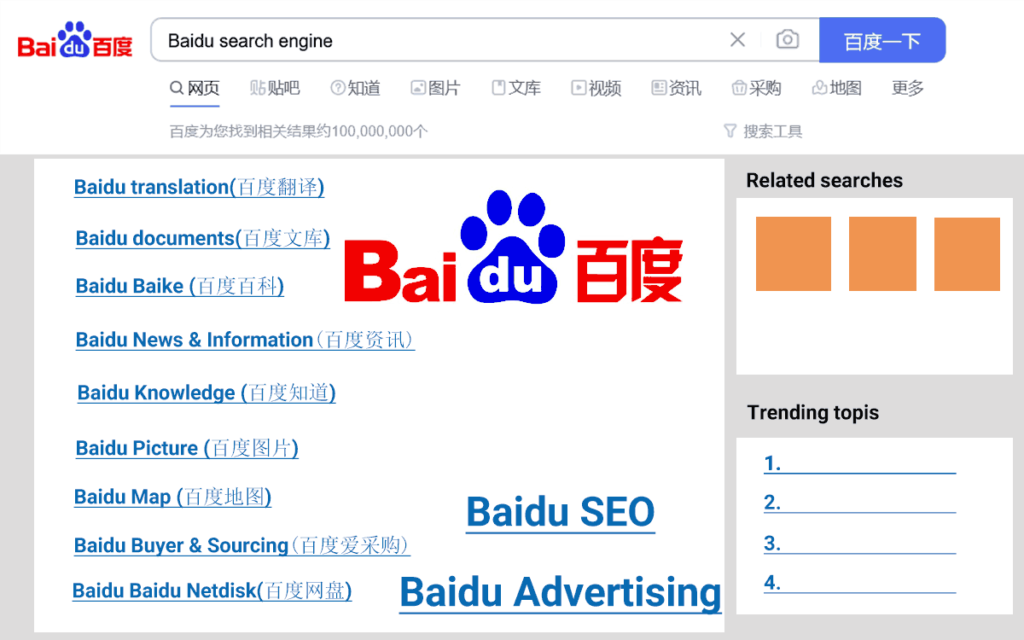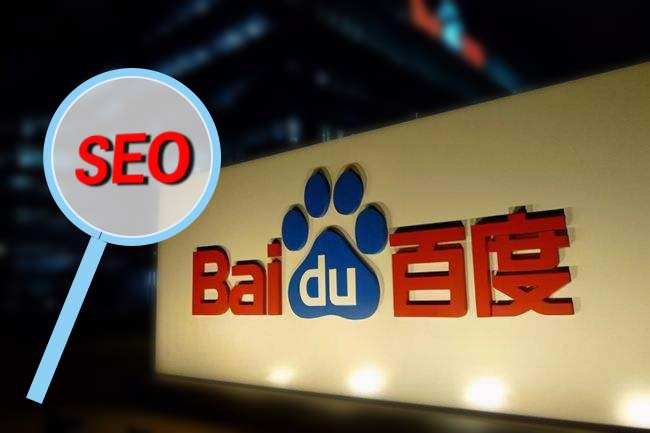China operates on a “first-to-file” system, which means that the first party to file a trademark application will have priority over any subsequent applications for the same or similar mark. Therefore, it is essential to register your trademark in China as soon as possible to prevent others from using or registering it. In this article I will show you how to protect your brand in China.

Table of Contents
- Why overseas companies choose to enter the Chinese market
- Why is brand protection important in China
- What are the challenges of brand protection
- How to protect your brand in China
Why overseas companies choose to enter the Chinese market
There are tons of well-known foreign brands have entered the Chinese market, and the number is still continuing to grow. I think the core reason is clear to you, that is, China is the second-largest consumer market in the world.
A forward-thinking company would not ignore the vast business opportunities in China. So most of them has already shared the Chinese market. But there are some companies still in a wait-and-see mode. That’s good for your business, at least you should do your homework before you decide to enter China market.
Now, let’s take a look at why overseas companies choose China market.
1. Large and growing market:
China has the world’s largest population and a rapidly growing middle class, which creates significant demand for goods and services. This presents a significant opportunity for overseas companies to tap into this market and expand their customer base.
2. Cost advantages:
China offers cost advantages in terms of labor, manufacturing, and production. These advantages can help overseas companies reduce their costs and increase their competitiveness in the global market. That’s why Elon Musk set up Tesla factory in China.
3. Access to resources:
China has a wealth of natural resources, such as coal, iron, and rare earth minerals. This makes China an attractive destination for companies looking to secure access to these resources.
4. Government support:
This is very important that you should know. If ten or twenty years ago, I would never say that overseas company entering China market is a easy thing and smart move. But now, It’s easy and good move to enter China market.
The Chinese government has implemented policies and incentives to encourage foreign investment and technology transfer. This includes tax incentives, subsidies, bank loans and streamlined administrative procedures, etc. It all shows China encourages foreign investment and businesses in China.
5. Innovation and technology:
China has become a leader in innovation and technology, particularly in areas such as e-commerce, mobile payments, and artificial intelligence. This presents opportunities for overseas companies to partner with Chinese firms and access cutting-edge technology.
The Chinese market presents significant opportunities for overseas companies to expand their reach and tap into a growing customer base. However, it is important for companies to understand the unique challenges and complexities of the Chinese market and develop a comprehensive strategy to succeed.
Because many of you have no need for setup factory in China. On the other hand, you probably prefer to sell products or services to China. Then e-commerce is what you need consider. It doesn’t matter. All you need to do is knowing how to protect your brand in China.
Why is brand protection important in China
There is no need me to emphasize that your brand is your business, your key to money. High quality products means nothing if few people know your products. Customers need to know your products exist, knowing your brand name (product name). That’s why every enterprise put a lot of effort and money in brand awareness building.
If you’re lacking in brand protection, all the effort you put will earn you nothing. Instead, others steal the benefits you deserved. Are you really going to give the benefit away?
What are the challenges of brand protection
(1) Ignoring Chinese Trademark Registration
Foreign companies often use trademarks with non-Chinese characters, primarily intended for their home countries. However, with China’s growing importance in global trade, many foreign companies want to enter the Chinese market. To do so, they often create a Chinese version of their trademark as the main brand for promotion in China.
Sadly, some companies neglect to register their Chinese trademark, allowing others to seize and register it, causing legal obstacles to their brand establishment and market expansion. The companies then need to resort to legal actions, which consume time and resources, to prevent unauthorized use.
(2) Trademark Squatting
In recent years, there have been cases of foreign trademarks being squatted in China. This occurs when opportunistic individuals or entities register trademarks similar to established foreign brands.
This practice can have two major drawbacks for the original trademark owners: first, they may not be able to use their own brand in the Chinese market, leading to potential losses; second, the squatters can use the trademark to market their own products, creating confusion and competition.
The cause of trademark squatting lies in the regional nature of trademark registration systems. Moreover, inadequate strategic planning in trademark applications by some companies exacerbates the problem.
(3) Overlooking Trademark Authorized Person’s Quality
When foreign companies license their trademarks to others in China, they should also monitor the quality of the Trademark Authorized Person. Neglecting this oversight can lead to public confusion about the association between the trademark owner and the authorized. It might even result in the trademark owner being held liable in infringement disputes involving the licensee. What the trademark authorized person did probably will hurt your band badly. It happens in China.
(4) Lack of Understanding about Trademark Enforcement in China
China has a dual-track trademark protection system involving both administrative enforcement and judicial practices. However, many foreign companies lack awareness of how this system works, including the procedures and evidence rules. This lack of understanding affects their trademark protection in China and may lead to misconceptions about the government’s commitment to protecting intellectual property rights.
How to protect your brand in China
1. Register your trademark
Trademark registration is crucial to protect your brand in China. You can register your trademark with the China National Intellectual Property Administration (CNIPA) or hire a local agency to assist you in the process.
- Trademark registered in China
It is recommended to register your trademark as soon as possible to prevent others from using or registering it. Even you hold the trademarks in your country, you still have to register trademark in China.
Because only if the Trademark registered in China, you have the full-right to use it and protected by China local law.
Like I said, China operates on a “first-to-file” system, which means that the first party to file a trademark application will have priority over any subsequent applications for the same or similar mark. Different country has different rules for Trademarks.
The bad new is, there are some special company live for registering Trademarks only. They just want to apply for Trademarks before your registration. And they got your Trademark before you. So you either pay them to get it back, or you lost your Trademarks.
So Trademark Registration is a top priority for you business in China.
- Register Chinese Trademark
Generally speaking, overseas companies will register extra trademark in Chinese. It can prevent people use your trademark in Chinese. Because sometimes, people don’t know how to say your English trademark, so Chinese people will translate it to Chinese referring to your brand.
Therefore, you also need to register your trademark in Chinese. It won’t cost you much money but without doing this may affect your brand so much. Even cause you lost the whole business in China.
2. Monitor your brand
Keeping an eye on how your brand is being used in China is vital. You can hire a local monitoring agency to monitor the use of your brand, both online and offline. They can detect and report any infringement, such as unauthorized use of your trademark or counterfeit products.
Especially when you launched e-commerce store on Tmall Global, JD Worldwide, Douyin Global and Xiaohongshu store. You have to monitor your brand.
Because your brand/trademark probably will be used without authorization. It happens a lot as long as your brand is well-known or profitable for them.
3. Enforce your rights
Once there is any infringement, you need to collect the proofs before contacting the infringer. That’s the first rule.
And If you discover any infringement or counterfeiting, you must act quickly to enforce your rights. You can hire a local law firm to help you take legal action against infringers.
As for the e-commerce platform, they will help you to remove the infringers’ store listings or entire online store after your reporting the infringement.
4. Build relationships
Establishing relationships with local partners, suppliers, and distributors can help you protect your brand in China. Working with trusted partners can help you avoid potential infringement and counterfeit issues.
5. Educate your customers
Educating your customers on how to identify genuine products and avoid counterfeit ones can help protect your brand. You can include anti-counterfeiting features on your products, such as holograms, security labels, and QR codes.
At the meantime, you should also need to keep an eye on the domain. If you’re considering to launch your company website or online store website. The domain name can be registered from any country. So you don’t need to buy domain from China. But if you want to launch a certified domain website, you need to follow the Chinese law. Otherwise the website may not be found in China.
Conclusion
Protecting your brand in China requires diligence, proactive monitoring, and a solid understanding of the legal system. By taking these steps, you can help ensure that your brand is protected and thriving in China.
We’re a company based in Guangzhou, Shenzhen and Hongkong. If you need any help with Chinese social media marketing, Advertising and Chinese e-commerce. We’re looking forward to hearing from you.













